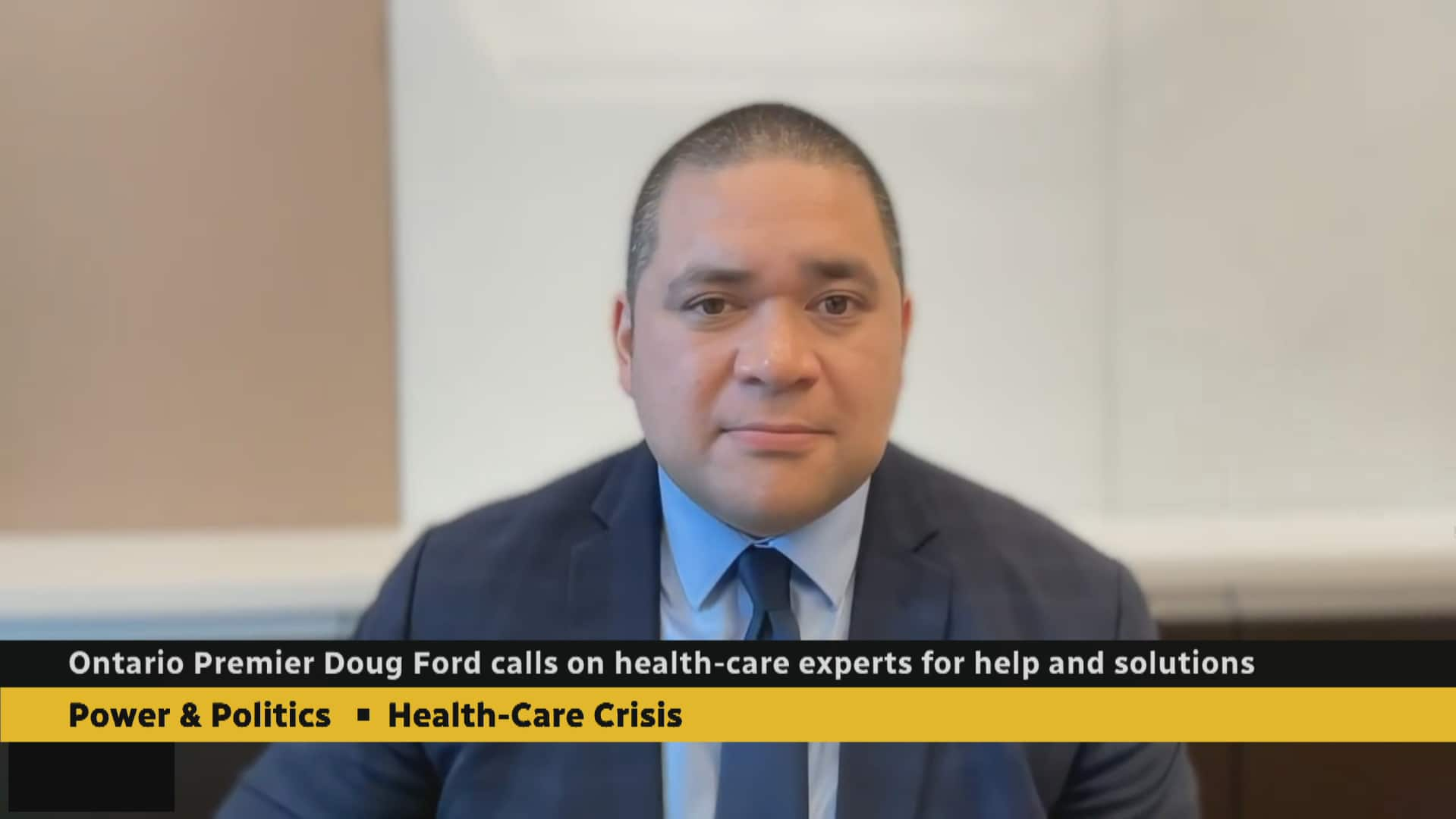Premiers who gathered in Moncton, New Brunswick, for a health care summit on Monday called for significant changes to service delivery in their provinces and hinted at the possibility of more services through the private sector.
“The status quo isn’t working, folks,” Ontario Premier Doug Ford said at a press conference after the meeting.
“We have to be creative, we have to come up with ideas from [health care] sector.”
Ford met with Premiers Blaine Higgs of New Brunswick, Tim Houston of Nova Scotia and Dennis King of Prince Edward Island during the summit.
Ford — who met with Intergovernmental Affairs Minister Dominic LeBlanc ahead of the meeting — said health care was “the number one priority” cited by the premiers.
Ford also said he had a “phenomenal conversation” with LeBlanc about the challenges facing provincial health systems.
“Urgent action is needed if the federal government is to ensure the sustainability of health care and services across Canada,” Higgs said.
WATCH / Need to see better health outcomes, says New Brunswick Premier
“Don’t prescribe where we put the money, but let’s agree on what a better health care system looks like,” said New Brunswick Premier Blaine Higgs of federal health care funding health. “This needs to be coupled with a direct improvement in outcomes for people in every province.”
Disagreements over health care funding have strained relations between Canada’s premiers and the federal government for years, but the increasingly dire situation in hospitals and emergency departments has pushed prime ministers to push for more forceful change.
At a gathering of all provincial and territorial leaders in July, British Columbia Premier John Horgan said health care in Canada had deteriorated to such an extent that Canada would have to “reimagine » how public health care is delivered.
Premiers say Ottawa needs to increase its share of health care funding from 22% to 35% to build a sustainable and well-functioning system.
The federal government argues that the calculations used by the provinces do not accurately reflect Ottawa’s contributions to provincial health care services.
More private care an option
Ford’s Progressive Conservative government has outlined a plan to ease the strain on Ontario’s health care system by funding more surgeries performed in private clinics, among other proposed changes.
Hundreds of organizations in Ontario’s health care sector have pledged to fight what they see as the growing privatization of the system.
But after Monday’s meeting, Ford was not the only premier to entertain the idea of moving more services to the private sector.
Higgs said he would consider changes in New Brunswick if they could be done “in a constructive way that gets results.”
“Everything is a possibility when it comes to, how can we improve health care,” he said.
He later noted that any changes being considered should still be considered “state-funded health care.”
WATCH / Privatization is not the answer, says CMA president
Newly elected CMA president Dr. Alika Lafontaine says she agrees with the premiers that the status quo in health care is “no longer an option.” He says support for the public health system needs to be addressed before considering other options.
Dr. Michael Gardam, CEO of Health PEI, said he was pleased to see Premiers candidly discussing the challenges facing their health care systems.
“Personally, I am very encouraged that we are not hearing the rhetoric that we might have heard a few years ago about the fact that we have the best health care system in the world and that nothing needs to change,” Gardam told CBC News Network.
Gardam, who heads Prince Edward Island’s public health authority, cautioned against using further privatization as a catch-all solution.
“We have to think carefully if we’re going to get our money’s worth or if we’re just going to starve the public system in order to get better access for people in another setting,” he said.

“Internet evangelist. Extreme communicator. Subtly charming alcohol aficionado. Typical tv geek.”

